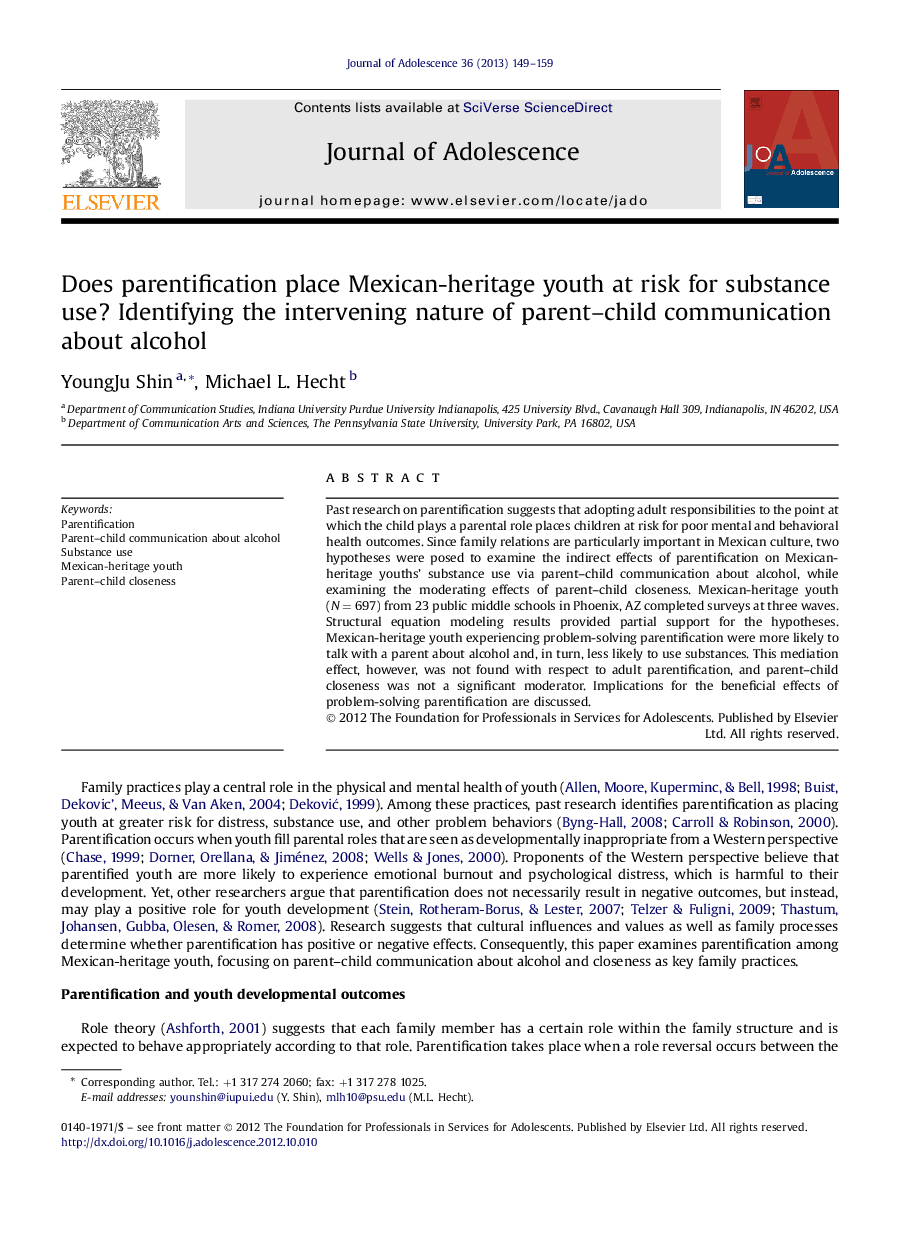| Article ID | Journal | Published Year | Pages | File Type |
|---|---|---|---|---|
| 880986 | Journal of Adolescence | 2013 | 11 Pages |
Past research on parentification suggests that adopting adult responsibilities to the point at which the child plays a parental role places children at risk for poor mental and behavioral health outcomes. Since family relations are particularly important in Mexican culture, two hypotheses were posed to examine the indirect effects of parentification on Mexican-heritage youths' substance use via parent–child communication about alcohol, while examining the moderating effects of parent–child closeness. Mexican-heritage youth (N = 697) from 23 public middle schools in Phoenix, AZ completed surveys at three waves. Structural equation modeling results provided partial support for the hypotheses. Mexican-heritage youth experiencing problem-solving parentification were more likely to talk with a parent about alcohol and, in turn, less likely to use substances. This mediation effect, however, was not found with respect to adult parentification, and parent–child closeness was not a significant moderator. Implications for the beneficial effects of problem-solving parentification are discussed.
